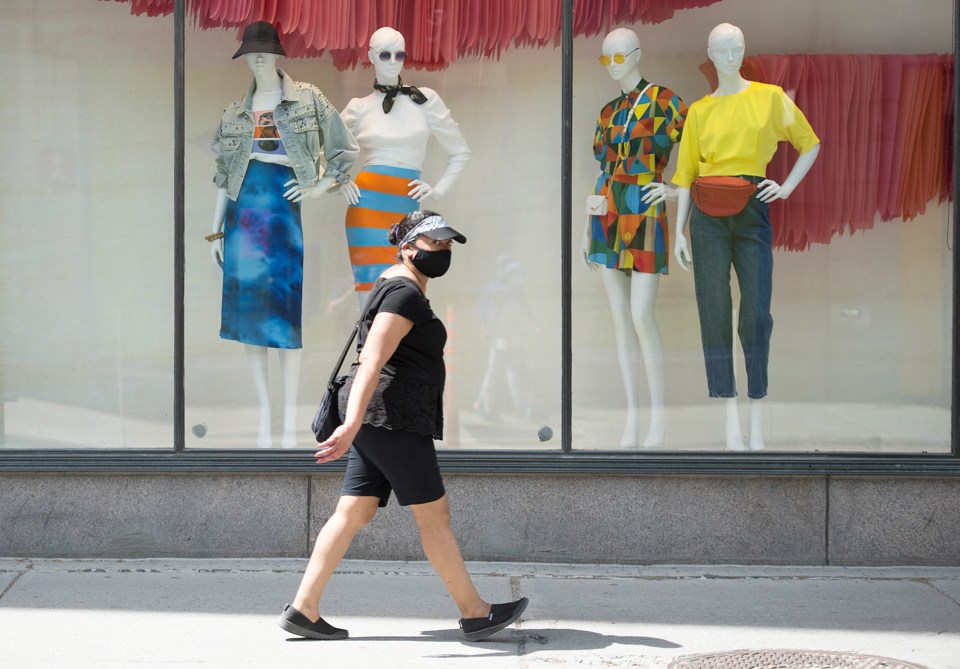Soaring temperatures and thick humid air can cause breathing difficulties for a number of people as summer approaches each year.
Add a cloth face mask to the equation and those problems can be further exacerbated.
With southern Ontario and Quebec experiencing their first heat wave of the season this week, health experts say it's best to ditch the mask when walking around outside.
"When you're breathing through a mask you're having to work a little bit harder to breathe in the first place, especially depending on how thick your mask is," said Dr. David Price, chair of the department of family medicine at McMaster University in Hamilton. "And then the other thing is you're rebreathing some of your air, so it's heating it up a little bit.
"So you've got not only the heat on the outside, but now you've got the heat inside the mask too."
Environment Canada says on its website that heat warnings are issued when high temperature or humidity conditions are "expected to pose an elevated risk of heat illnesses, such as heat stroke or heat exhaustion."
Temperatures in Toronto were expected to reach 31 C Tuesday, and feel like 39 with the humidex.
Price says those with asthma, chronic obstructive lung disease or emphysema are at further risk of breathing problems when high temperatures, humidity and air pollution converge to make the air more dense.
Kids, who are typically at greater risk than adults for dehydration and heat illness, should also avoid wearing masks outdoors, "unless they are sick and you're going to be in close contact with somebody else," Price added.
Wearing a mask in humid conditions can cause more problems than just difficulty breathing, though.
"It's really unhealthy to wear a mask for prolonged periods because it collects bacteria and bacteria proliferate," said Colin Furness, an epidemiologist at the University of Toronto. "And the warmer and more moist the environment is, the happier the bacteria are to multiply.
Furness says masks should be reserved for indoor use, in places such as in grocery stores, when it's harder to keep a physical distance.
In potentially crowded indoor areas without air circulation — like a non-air conditioned public transit, for example — Furness suggests wearing the mask for the duration of the ride but taking it off once you get back outdoors.
And if you find yourself in a crowded park where distance becomes harder to maintain, like some in Toronto did last weekend, Furness says "just leave."
"If we're outside, regardless of weather, we should be staying more than six feet away and avoiding situations when we can't," he said. "I don't want anyone thinking that wearing a mask is a substitute for physical distancing — it isn't."
Gary Kobinger, the director of the Research Centre on Infectious Diseases at Laval University, agrees that masks typically aren't needed outdoors, but he suggests people always carry them, "in case they get in a situation where they cannot keep two metres" apart.
He also suggests folding the mask when not in use to "protect the inside," and placing it in a Ziploc bag to keep it from contamination.
Price says masks will be less effective if they get wet from sweat or humidity because "moisture reduces the filtration."
"That's one piece of advice we give to our health care folks. ... and the same principle applies for cloth masks if you're wearing them outside," he said.
This report by The Canadian Press was first published May 26, 2020.
— With files from Cassandra Szklarski
Melissa Couto, The Canadian Press




